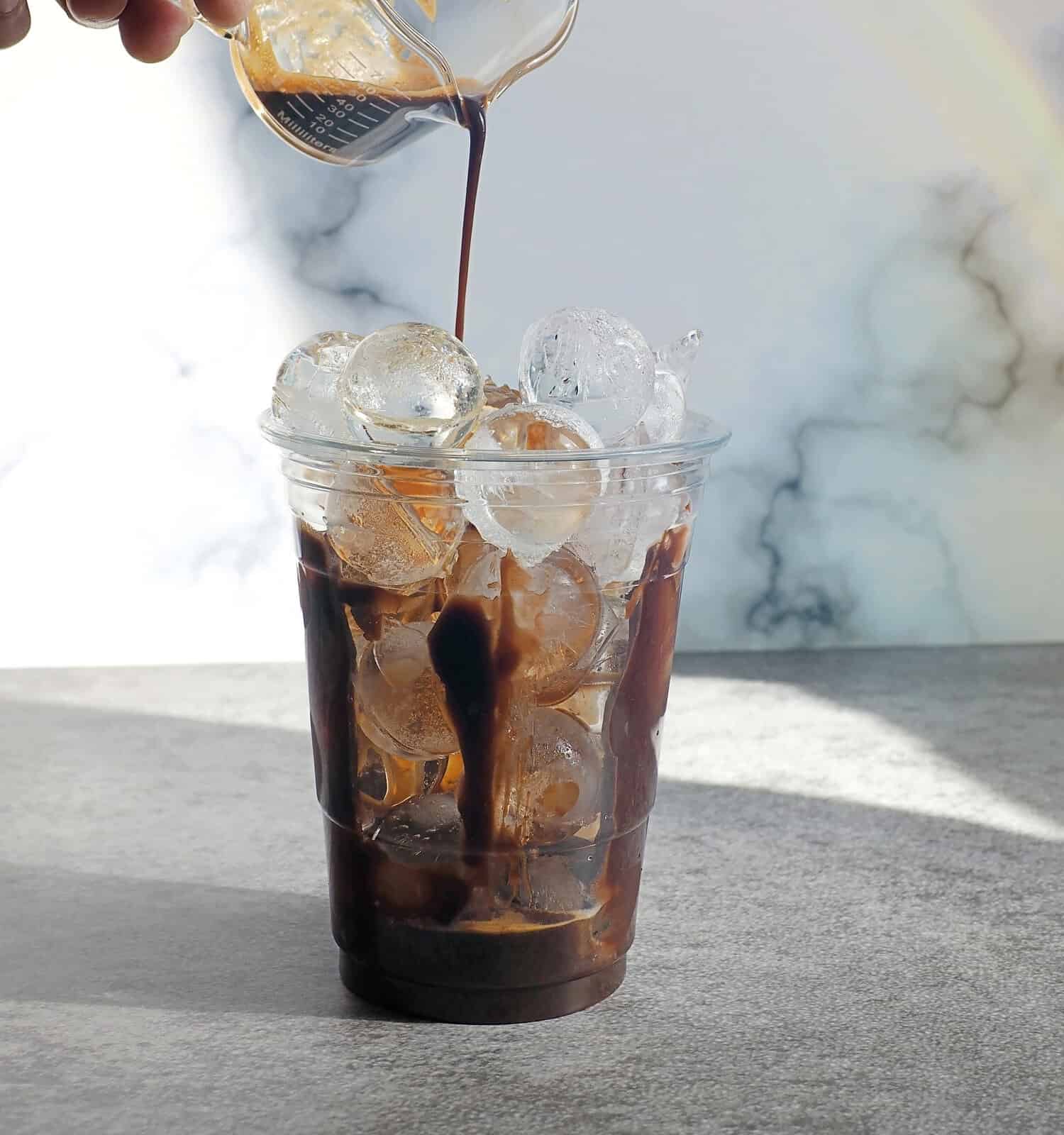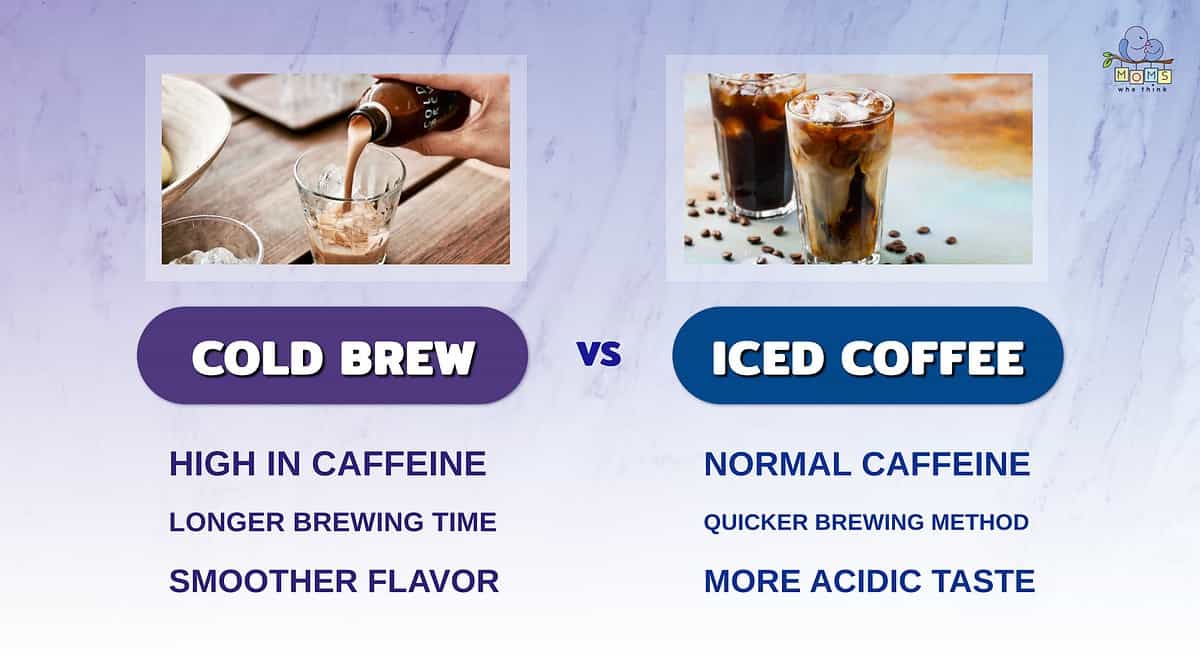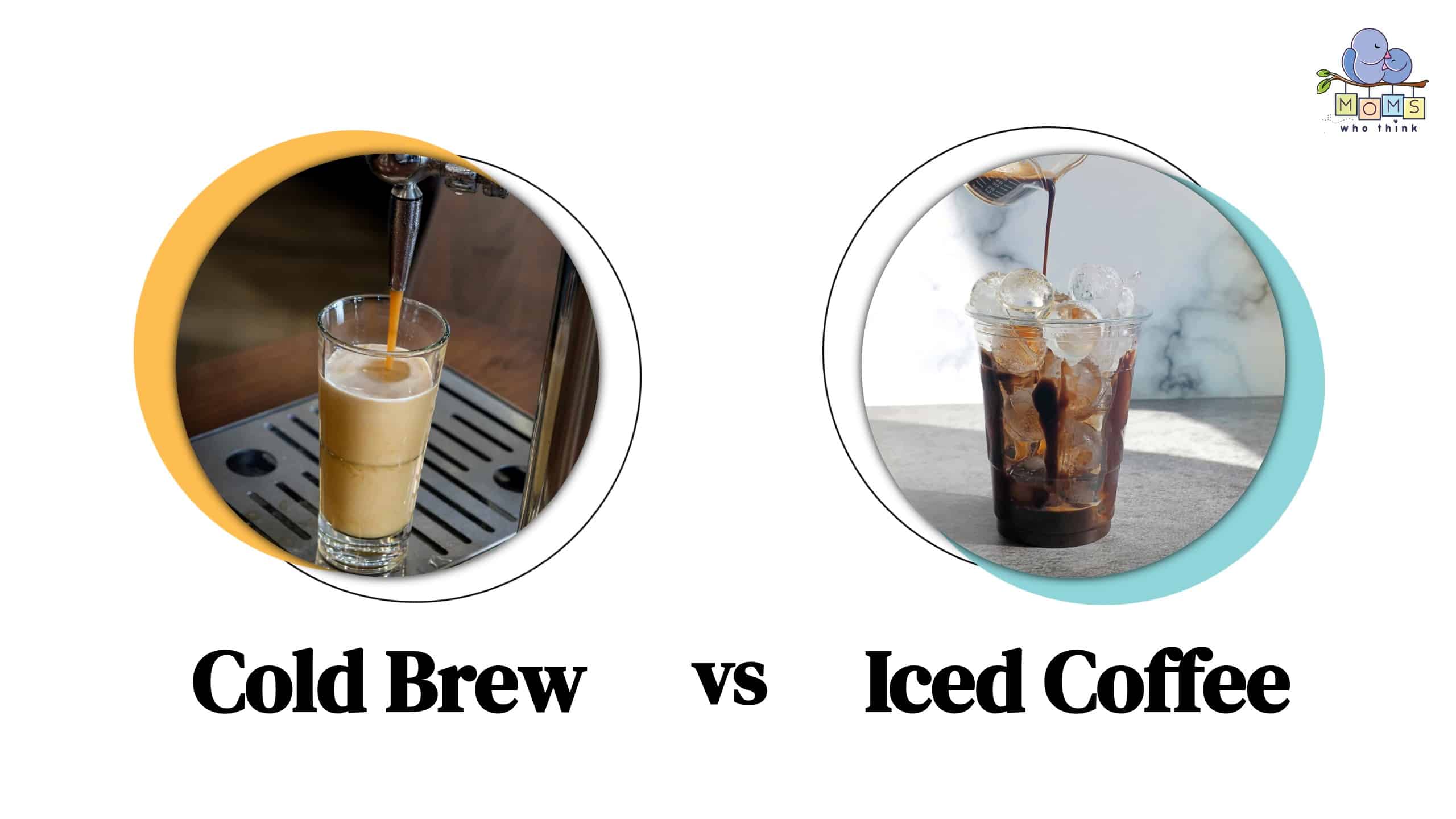Imagine a typical busy day in the hot sun. You’ve got errands to run, kids to tend to, and a laundry list of other things to take care of. You need a boost to get you through the day. But wait, before you get your coffee fix, you've got two options: cold brew vs. ice coffee. Which one wins?
Well, let’s be clear: the first thing to note is that BOTH come from coffee beans. Yet, the differences between cold brew vs. iced coffee are worth noting. And that’s what you’re about to discover in this article. And then, you can decide which one works best for you in your demanding role as a mom ready to handle the unscripted daily challenges of raising kids! So let’s get started!
Key Difference #1 – Brewing Method
Cold brew coffee is made by slowly steeping coarse ground coffee beans in cold or room temperature water for 10 to 24 hours and then strained. This process is used to intensify the taste of the coffee beans. Usually, coffee lovers dilute the strong brew with water or milk.
On the other hand, iced coffee is made from freshly brewed hot coffee that’s chilled and served over ice.

©Teeraporn Sukjit/Shutterstock.com
Bottom line: Cold brew doesn’t use heat and is a longer process. On the other hand, iced coffee is a faster method and uses hot coffee that has been cooled and poured over ice.
Key Difference #2 – Strength
Because of the slow-steeping process, cold brew coffee usually has a higher caffeine content and more robust flavor. That’s why it is mixed with water or milk to have just the right strength of coffee you need.
On the flip side, iced coffee uses more coffee grounds so that it can retain some strength when it’s poured over ice.
Bottom line: It’s the magical ingredient that makes you feel good and keeps you going: caffeine! Cold brew retains the strong caffeine flavor but can be diluted as needed. On the other hand, depending on how iced coffee is prepared when hot, it can quickly lose its strong flavor and caffeine.
Key Difference #3 – Acidity
If you’re sensitive to acid, you may prefer cold brew coffee. Why? Because according to several scientific studies, cold brew coffee is found to have almost 70% lower acid levels when compared to hot coffee!
Key Difference #4 – It's All About That Taste
Coffee lovers agree that cold brew tends to be smoother and have a less acidic taste when compared to iced coffee. In fact, the slow-steeping brewing process helps reduce the acidic taste and gives it a palatable, sweeter flavor. That’s why Starbucks and Dunkin Donuts market cold brew coffee as tasting smoother and less acidic than traditionally prepared hot brewed coffees.
Iced coffee is versatile in how strong the acidic taste and aroma are based on the makeup of the hot brewed coffee. Remember that the flavor can become diluted once the coffee is poured over ice.
Bottom line: Cold brew can have a palatable taste, while iced coffee can be tricky with flavor once diluted with ice.
Key Difference #5 – Prep Time
With a bit of forethought, you can prepare your cup of cold brew coffee the night before since you’ll need time for the steeping process.
However, if you’re pressed for time, you may opt for iced coffee. The quick hot brewing method and then cooling it down rapidly by pouring it over ice gets you your caffeine fix quicker.
Bottom line: If you’ve got time, cold brew can be prepared a day ahead. But if time isn’t on your side, you may opt for the quicker method of iced coffee.

©Boontoom Sae-Kor/Shutterstock.com
Which is healthier cold brew or iced coffee?
Well, that depends. Below gives you some food for thought.
Cold Brew Coffee Health Facts
Low in acidity – This is good to know if you have a sensitive stomach when compared to hot brewed coffee.
Less of a bitter taste – Thanks to the slow-steeping method, cold brew coffee reduces the amount of bitter compounds resulting in a smoother, more milder taste.
High caffeine concentration – Compared to iced coffee, cold brew is slightly higher in caffeine. On average, cold brew coffee has around 200 mg of caffeine per 16 ounces. That’s like drinking two 8-ounce cups of brewed coffee in one serving. Or about five cans of soda.
Calorie count – Because the taste is milder, you may not need to add a lot of sugar. This can help reduce your caloric intake. On the other hand, when you add milk, cream, or any other sweetener, you increase the calorie count.
Healthy Tips for Iced Coffee
High-quality coffee – If you’re an iced coffee lover, you benefit by reading this next section. Start with high-quality beans that are freshly roasted and ground. Why? Because they are usually grown using sustainable and environmentally-friendly practices. This means you reduce the risk of harmful pesticides and other chemicals. And if you choose specialty coffee beans, they contain immune-boosting compounds too!
Tap into unsweetened milk alternatives – Options such as almond, oat, or coconut milk are lower in sugar and will give you creaminess without the unnecessary calories.
Experiment with flavors – Explore with your naturally flavored syrup using fruit extracts, herbs, and spices to add to your iced coffee. That way, you can control the sweetness and avoid artificial additives.
Friendly reminders on coffee and your health:
Try natural sweeteners like honey, maple syrup, or stevia to add to your coffee. You can gradually reduce the amount of sweeteners and your dependence on them!
Also, if you’re concerned about how coffee can affect your cholesterol levels, please keep the following information in mind. While cholesterol is naturally produced in your body, you also get it through certain foods, not coffee. But here’s what you need to consider.
Coffee oils or diterpenes, such as cafestol and kahweol, are naturally found in caffeinated and decaffeinated coffee. Studies show that cafestol affects how cholesterol is produced in your body and how it is broken down. But here’s the good news!
Filtering your coffee helps leave the cafestol in the filter, not your cup! So whether you choose the cold brew or iced coffee method, use a good filter to make your cup coffee magic!
Coffee Lovers Will Agree…
Research shows coffee, whether cold brew or iced, has shown to:
Boost energy!
Improve mental thinking!
Make you feel good!

©Farknot Architect/Shutterstock.com
And since cold brew coffee is full of antioxidants, it can help slow down cellular aging and other health issues. That’s one up for cold brew coffee lovers!
In fact, research from the Mayo Clinic shows that a moderate amount of coffee can help reduce the risk of heart problems, blue mood, and other health-related concerns.
Final Thoughts

If you're a coffee lover, then you're well aware of the myriad options available. When it comes to cold brew vs. iced coffee, individuals are more for one side than the other since there are a few differences between the two. Here are some distinctions to help you decide your favorite:
- Typically those not sensitive to caffeine opt for the cold brew option. However, iced coffee is perfect if milder coffee is your style.
- Many complain about the acidic taste of regular and iced coffee, while cold brew is smoother in taste.
- Making iced coffee is the best option if you're strapped for time. But, if you have time or have a store-bought version, try cold brew out.
Now you can see the clear differences between cold brew vs. iced coffee. Think of cold brew as the smooth operator. It’s slowly steeped for a calm and mild taste. Cold brew takes time to create a mellow, gentle flavor that's easy on your stomach. That’s perfect if you don't like strong flavors and have a sensitive stomach.
On the other hand, iced coffee is like that zesty friend! It’s brewed hot and then cooled down quickly with ice. Iced coffee keeps the classic coffee tang and is slightly stronger. It’s a bit bolder. Add the ice, and it becomes a refreshing cup to sip, especially on a hot day. So, whether you're into the calm of cold brew or the zing of iced coffee, both offer a chilly escape from the heat and a tasty way to enjoy coffee your coffee on another level!

